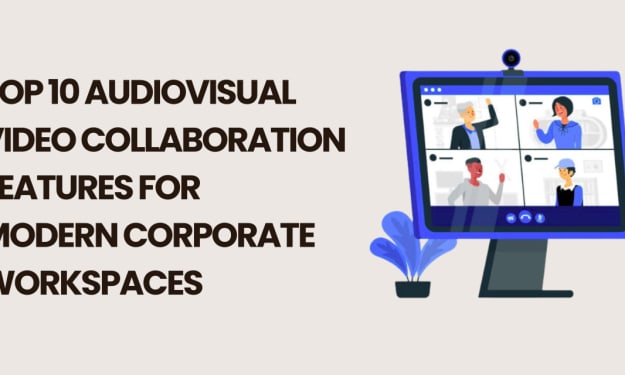How to Become a IT Professional
Information Communication Technology

To become an IT professional, there are several steps you can follow:
Define your career goals: IT is a vast field with various specializations such as software development, network administration, cybersecurity, data analysis, etc. Determine which area interests you the most and align your career goals accordingly.
Obtain a relevant degree or certification: While not all IT positions require a formal degree, it can greatly enhance your prospects. Consider pursuing a degree in computer science, information technology, or a related field. Alternatively, you can focus on acquiring industry-recognized certifications such as CompTIA A+, Network+, Security+, or certifications specific to your desired specialization.
Develop technical skills: IT professionals need a strong foundation in technical skills. Depending on your chosen area of specialization, focus on learning programming languages, system administration, database management, cybersecurity principles, and other relevant skills. You can pursue online courses, attend workshops, join coding bootcamps, or engage in self-study.
Gain practical experience: While studying, seek opportunities to apply your knowledge through internships, part-time jobs, or volunteer work. Practical experience will not only enhance your skills but also make your resume more appealing to potential employers.
Build a portfolio: As you gain experience, create a portfolio showcasing your projects and achievements. This can include software you've developed, websites you've built, or any other relevant work that demonstrates your abilities. A portfolio is a valuable asset when applying for IT positions.
Stay updated with industry trends: The field of IT is constantly evolving. Stay abreast of the latest technologies, tools, and trends by reading industry publications, participating in online forums and communities, attending conferences, and taking part in continuing education programs.
Networking and professional development: Networking plays a crucial role in career advancement. Attend industry events, join professional organizations, and connect with other IT professionals. Engage in conversations, seek mentors, and explore opportunities for professional development.
Job search and interview preparation: Prepare a well-crafted resume highlighting your skills, experience, and achievements. Tailor your resume for each job application and write a compelling cover letter. Practice for interviews by researching common IT interview questions and formulating thoughtful responses. Be prepared to showcase your technical knowledge and problem-solving abilities.
Continuous learning: The IT industry is dynamic, and ongoing learning is essential to stay relevant. Embrace a mindset of continuous learning and seek opportunities to upgrade your skills. Pursue advanced certifications, take online courses, and explore new technologies to stay ahead in your career.
Remember, becoming an IT professional is a journey that requires dedication, continuous learning, and adaptability. Embrace new challenges, seek opportunities to grow, and be open to expanding your skillset as the field evolves.
Part ii
Certainly! Here are a few more steps to help you on your journey to becoming an IT professional:
Specialize in a specific area: As you gain experience and knowledge, consider specializing in a specific area of IT that aligns with your interests and career goals. This could be in software development, data analytics, cybersecurity, cloud computing, artificial intelligence, or any other emerging field. Specializing can open up more opportunities and allow you to become an expert in your chosen domain.
Engage in open-source projects: Open-source projects provide a platform to collaborate with other developers and contribute to the development of software or tools used by the IT community. Contributing to open-source projects not only enhances your skills but also helps you establish a reputation and network within the industry.
Develop soft skills: In addition to technical expertise, IT professionals also need strong soft skills. Communication, problem-solving, teamwork, and project management skills are valuable in any IT role. Work on improving these skills through practice, feedback, and continuous learning.
Consider industry certifications: Many IT roles have specific certifications that validate your expertise and can enhance your employability. Research the certifications relevant to your desired specialization and consider pursuing them. Examples include Certified Information Systems Security Professional (CISSP), Certified Ethical Hacker (CEH), AWS Certified Solutions Architect, Microsoft Certified: Azure Administrator, and many more.
Create an online presence: Establishing an online presence can boost your visibility and professional brand. Create a LinkedIn profile highlighting your skills and experiences, contribute to relevant online forums or communities, and consider starting a technical blog to share your knowledge and insights.
Embrace lifelong learning: IT is an ever-evolving field, and to stay ahead, you must embrace a mindset of lifelong learning. Stay updated with industry news, follow thought leaders, and continue expanding your skillset. Online learning platforms like Coursera, Udemy, and edX offer a wide range of courses to help you stay current and acquire new skills.
Seek mentorship: Finding a mentor who has experience in your desired field can be immensely valuable. A mentor can provide guidance, share insights, and help you navigate your career path. Look for networking opportunities or join mentorship programs offered by professional organizations or educational institutions.
Be adaptable and embrace challenges: The IT industry is known for its fast-paced and rapidly changing nature. Be adaptable, embrace challenges, and be willing to step out of your comfort zone. Continuously seek opportunities to learn and grow, even if it means taking on new projects or roles that may seem challenging at first.
Remember, the path to becoming an IT professional is unique for each individual. Stay focused on your goals, be persistent, and seize opportunities to learn, grow, and contribute to the ever-evolving world of technology.
About the Creator
Enjoyed the story? Support the Creator.
Subscribe for free to receive all their stories in your feed. You could also pledge your support or give them a one-off tip, letting them know you appreciate their work.






Comments
There are no comments for this story
Be the first to respond and start the conversation.